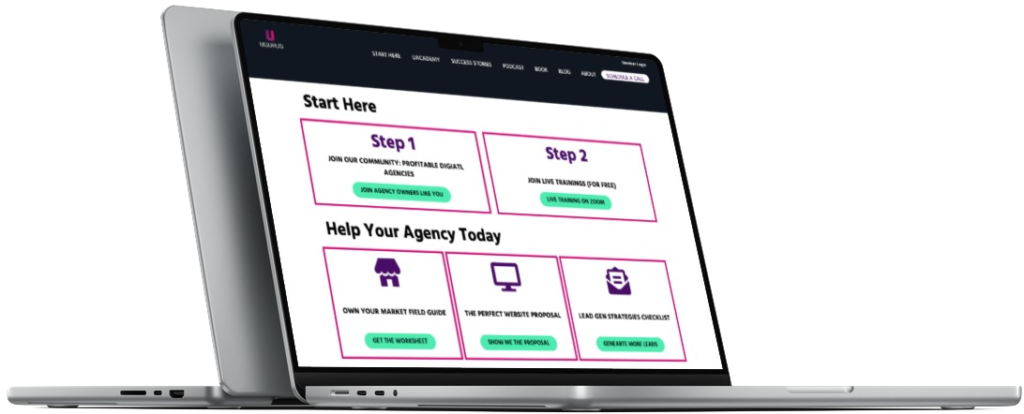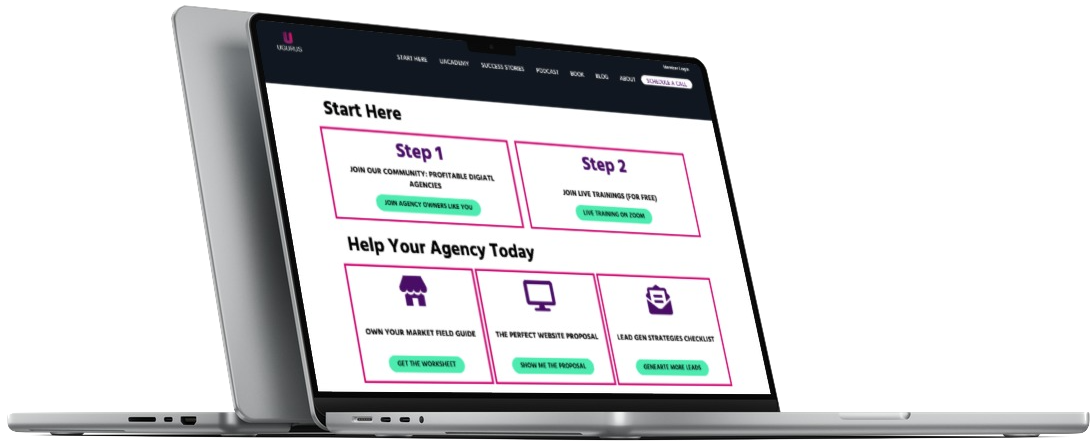If you started on your own and you’re growing, it’s hard to realize you’re not the only person exercising judgment and affecting the trajectory of your business anymore. I learned from my wife, Aisha, that paying attention to a few areas of your business can take it to another level.
Aisha has helped me see that delegation and relinquishing control are critical. If you can’t do either of these, employees won’t feel empowered, engaged, or listened to.
Here are a few of the important lessons I’ve had to learn as by business has grown from lone wolf to small agency.
Prioritize Your Team
I’ll admit, I haven’t always been the best at this. I often default to my lone wolf tendency, thinking, “I’ll just knock this one thing out. I’ve got to get this thing done, and then I’ll get back to everyone.”
This thinking creates the wrong priority system. When you selfishly focus on “knocking this one thing out,” you’re making your teammates get in line for your time.
If someone needs feedback, they can’t get back to their work until they hear from you. This backlogging compounds, holding up all the other turning wheels in the agency because everyone is now waiting for you.
You can’t let this happen.
To make my team a priority, we have an 11 AM check in every day. If you really want to multiply yourself and your production power, you’ve got to put your team first. If you don’t do that, you’ll become the enemy of your own success.
Push Projects A Little Every Day
As a developer, it’s easy to get focused on one thing until it’s fixed. Sometimes that’s necessary, but if you’re dealing with lots of clients and projects, it’s far more effective to touch each one, pushing it a little further each day.
When your clients get radio silence, followed by a burst of communication, followed by more silence, they don’t feel as good about your work or the progress you’re making. It leads to much healthier relationships when you can touch each client in your queue every day.
We keep an index card for every client. It very simple, but it works wonders. We flip through the stack of cards in our morning meetings, giving attention to active projects. The cards remind us to talk about each client, identifying who needs what.
We then assign “touches” to one of our teammates to make sure communication with the client happens. This little piece of communication can be a short email or Basecamp to-do update. We’re also meticulous about getting the entire team copied on all Basecamp comments, so everyone can see what’s happening with each project.
There’s a lot of info out there around “sprints.” That doesn’t work for us. Clients need to see incremental progress to know what’s going on with their projects. If a client is active, they hear from us every two or three days, sometimes more.
Weekly Pulse Meetings
Similar to pushing projects a little each day, we have a weekly meeting for every live project. This is an idea I learned in $10K Bootcamp and, honestly, I wish I had done a better job of this earlier on.
Each meeting follows the same format: fifteen minutes, on the same day, at the same time. This ensures that clients know exactly what to expect. We cover four things in each meeting.
- Victories – what we achieved
- Issues – where we fell short or issues that came up
- Priorities – what we need to do next week
- Metrics – how the project is progressing, timeline, add scope, changes in budget, target completion date
This weekly pulse meeting gives active clients a good sense of how things are going. Establishing a routine with them helps to disarm any anxiety they might have about the project.
Documenting Processes
I’ll admit, we’re just starting to do this, but I know it’s going to be critical to taking our work to the next level.
The key here is to keep it simple. Create a Google Doc and record exactly what you do, especially if you find yourself doing it more than once.
If you’re doing anything from technical SEO to generating content or keyword research ask, “what’s my process?” Record procedures, processes, kick off emails. Take it a step further by asking, “What’s the kickoff email look like?” then create a swipe file.
As you adopt new tactics and strategies, you can update the document to keep everyone on the same page, allowing your team to stick to best practices.
Eventually, you’ll end up with a list of items you can delegate to team members who have that particular strength.
Growing Pains
All of this was pretty standard for Aisha, given her background. She was used to working with people on a team. But if you’re not used to that, this type of stuff can be an adjustment. It can be especially challenging if someone you work with already knows this stuff.
Know that it’s going to take time to perfect a system that’s right for you and your business. Once you start doing them, these are the types of small things that free you up to do higher value work for higher value pay.
What systems have you put in place to share the work load? In what ways have you learned to delegate tasks to be more efficient? Tell me about them in the comments.
GET YOUR FREE AGENCY ACCELERATOR PACKAGE






